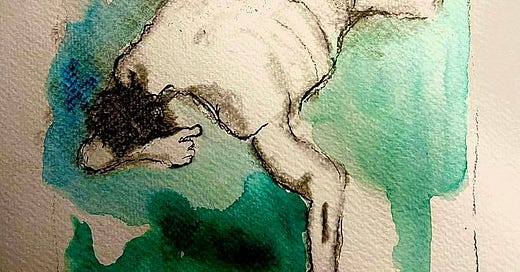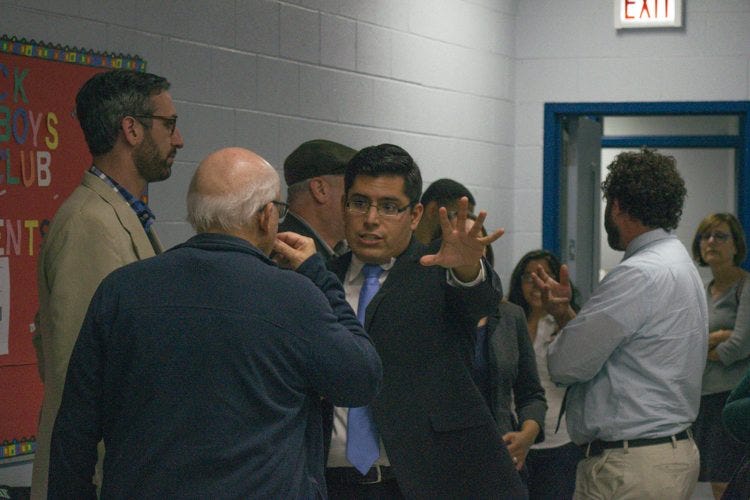A mansion tax for Chicago.
All my art can be found on Instagram @klonskyart
One of the attractions of my neighborhood when I first moved here 50 years ago and before it got “discovered” was the affordable housing stock.
Then it was discovered like Columbus discovered America, as if nobody lived here before.
It was for years a community of small workingmen’s cottages, large low cost apartments buildings and beautiful three flat greystones.
But by 2000, maybe earlier, that all changed. Thousands of immigrant families and long-time homeowners facing sky-rocketing property tax bills were forced out by gentrification.
I could not now afford the home I live in.
On my block there are now several million dollar homes. The latest is brand new construction. A cinder block box replacing a three flat. One family replacing three.
In 2016 I remember getting a phone call from my alderman’s office looking for a homeowner to testify at a community meeting being held to solicit comments about the latest Rahm Emanuel budget.
Rahm’s budgets were, like the mayors before him (not including Harold Washington) were not about our neighborhoods. They were about downtown development.
Plus Illinois has a constitutional prohibition against any graduated tax. Rich people pay the same tax rate as working people.
But talking with people much smarter than me, I had heard that a sur-tax on million dollar home sales would not violate the constitution.
I was going to share that idea at the community meeting on Rahm’s budget that my alderman had called and asked me to speak at.
My alderman at a 2016 community meeting on the city budget.
To my surprise, when I arrived at Avondale elementary school where the community forum was being held, I was told by the alderman’s people that the alderman had changed his mind and that he wasn’t taking any questions or comments.
The alderman and I had a brief if not particularly cordial back and forth about holding a community forum where no questions or comments would be allowed.
I left, only to get a call saying that the alderman had changed his mind again and I could make my mansion tax suggestion from the floor.
That’s pretty much how Chicago democracy often works.
Flash forward six years.
Guess what?
There is a bill being considered.
The Bring Chicago Home campaign submitted a proposal to increase the city’s transfer tax on property sales at $1 million or more. The current policy requires a buyer to pay a one-time $7,500 transfer tax for every $1 million in purchase price. The new proposal would more than triple the buyer’s transfer tax, to $26,500 per $1 million — a marked increase from the previously shot-down 2018 proposal, which would have raised the tax to $19,500.
The amount the sellers have to pay in transfer tax — $3,000 — won’t change under the new proposal.
“We know the city’s real estate market has been doing really well, it’s rebounding after the pandemic,” Mike Eldridge, a member of the Jewish Council on Urban Affairs, said. “And if we’re being honest, anyone purchasing a million-dollar property can afford to pay a little bit extra in order to make sure others have a place to live.”
The number of Chicago-area homes that sold for $1 million or more in 2021 hit a new high, up 19 percent from 2020 when the housing boom really kicked off. In the past 12 months, 2,535 of the 46,720 homes sold in Chicago went for $1 million or more.
The mansion tax would generate $163 million in funding for programs that combat homelessness, according to the campaign website. The group estimates the money from the tax would be able to provide housing for 12,000 families over the course of 10 years.
If the truth be told, 12,000 families over ten years is a drop in the bucket in terms of affordable housing and homelessness in Chicago.
I just thought it was a good idea.
Six years ago.





